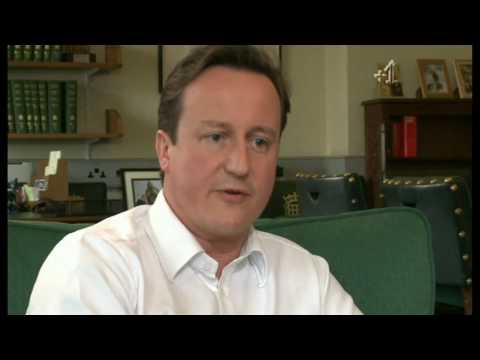In May this year, Adèle Exarchopoulos and Léa Seydoux made cinematic history when they became the first actors to win the coveted Palme d’Or at Cannes for their roles in Abdellatif Kechiche’s Blue Is The Warmest Colour. Cinematically, the film is brilliant; a poignant coming-of-age story about sexual discovery and desire that lingers over a backdrop of art, existentialism and the impassioned consumption of food. Over the course of three hours, its protagonists Adèle and Emma meet and fall in love intensely and unexpectedly, all within a simple yet textured narrative. Of course the film has its problematic moments: the insinuations of Adèle as the sexually insatiable bisexual, the lasting feeling that the invasive moments of intimacy are fuelled by Kechiche’s "male gaze"; but as someone who grew up on a visual culture of fleeting bicurious character arcs and girl-on-girl kisses created for male gratification, it’s difficult to criticise something so rarely seen in mainstream culture.
The real problem surrounding this film, and what I personally found most frustrating, was the rigorous dissection of the film’s sex scenes by audiences and media outlets across the globe, even before it was initially shown. "An onastic fete!" one male journalist reportedly quipped before the screening in Cannes. The scenes in question, which are around seven minutes in length, surfaced online well before the film leaked almost a fortnight ago, and are probably the only parts of the film some people have seen. These sex scenes have been sipped, swilled and spat out by every critic, blogger and internet forum going, with much of the remaining 180 minutes of the film going largely ignored. It certainly raises the question of whether this much attention would have been given to the film had it only contained explicit scenes of heterosexual intercourse – indeed many journalists failed to mention the fact that the film also contains an, admittedly shorter, but equally graphic heterosexual sex scene. Exarchopoulos and Seydoux spent most of their press junkets being grilled by journalists on every last detail of their simulated love scenes. They were needlessly and repeatedly asked about their own sexual preferences; how "awkward" the scenes were for them; the ins and outs of wearing prosthetic vaginas – often by blushing male critics giggling behind their notepads.
It’s this intent obsession with gay sex that I often find so perplexing about contemporary attitudes to homosexuality. In his brilliant yet deeply troubling two-part documentary Out There made for the BBC this year, Steven Fry explored international variants of homophobia, including a visit to Africa where he participated in a simultaneously frustrating and humourous radio debate with Ugandan pastor Solomon Male. After the reasonably restrained radio appearance alongside the small petulant director for purveyors of homophobic tyranny, Arising For Christ Ministries, the two continued their discussion more heatedly outside the studio, where Fry rightly pointed out that Male’s rabid preoccupations with genitalia – with lesbians obtaining urinary tract infections from carrots and gay men having anal prolapses – were not only ridiculous, but also completely irrelevant. Homosexuality after all, as Fry pointed out, is also about love, not just the banalities of intercourse. Male barely heard him over his own spiel about the outrageous demand of spare penises, vaginas and anuses that gay men and women in Africa surely needed in wake of all their "perversion and foolishness", leaving Fry and the radio station’s producers to prove that sometimes the best way to deal with fanatical homophobes is to drown their ridiculousness in hysterical laughter.
Sometimes though, sex does matter, and there are some positives to be taken from the extensive attention given to the scenes in Blue Is The Warmest Colour, however. In an age where even heterosexual scenes of women receiving oral sex are cut by the MPAA, while scenes of men receiving oral sex are prolific and rated relatively low, the film has already broken many boundaries of cinematic censorship. As of writing there have been no reports of edits for mainstream cinema and the only instance of it being banned has come from Idaho in the US, which was apparently due to an alcohol licensing law rather than any form of moral objection to homosexuality. The film has so far been distributed to 131 territories in total, including Iraq, Saudi Arabia, Pakistan and Nepal. However, despite the transgressive weight behind the film, Kechiche shrugged off all notions of it being political during a press conference held after screenings at Cannes, instead turning the focus to the film being an unadulterated work of art. It’s a disappointing turn, especially in a world still fraught with archaic homophobia.
Indeed this year has been a turbulent one for gay rights, one riddled with heartbreaking regression and wavering positivity. In June this year, Russia passed a law that banned the promotion of homosexuality to minors, effectively outlawing any public demonstrations or speeches on gay rights, and the terms of the ruling are so euphemistic and broad that this could even extend people being fined or arrested for public displays of homosexuality. It’s a startling reversal from the country’s decriminalisation of homosexual relationships in 1993, but hardly surprising considering the recent rise in influence of the Russian Orthodox Church and the increasing swing towards the authoritarian the country has taken in its post-Soviet years. Likewise in India, after decriminalising same-sex relationships in 2009, the Supreme Court this month upheld a 153-year old colonial ban on gay sex, maintaining that it was constitutional to prohibit "carnal intercourse against the order of nature". Whilst the Indian government has asked the court to review its rulings, it’s a particularly sorry affair when looking back on Fry’s documentary, in which he declared India as one of "the most comfortable countries in which to be gay." Australia too turned on recent rulings; same-sex marriage laws in the Australian Capital Territory (ACT) were this year removed only two months after being instated; the country’s highest court overturning a law that allowed same-sex couples there to marry, ruling void all current same-sex marriages and declaring the move a "comprehensive and exhaustive statement of the law of marriage".
By far the most terrifying piece of legislation of all happened just last week in Uganda, as the country passed an anti-homosexuality bill to toughen the punishment for homosexual acts, introducing a law that would include life imprisonment for homosexuals and extensive sentences for those who fail to report them.
It hasn’t all been bad news though. 2013 has been a promising year particularly in terms of an increase in mainstream trans visibility through the likes of Laverne Cox, Chelsea Manning, and Paris Lees, who not only topped this year’s Pink List, but also made an exceptional appearance on Question Time last month as well as consistently writing and speaking about trans rights for several high profile media outlets.
Throughout the western world we have seen more significant headway in terms of LGBT legislation. In the US same-sex marriage is now legal in 17 states, (that’s nine more than last year) including an overturning of Prop 8 that reinstated gay marriage in California. The US government also successfully repealed DOMA, and instated ENDA, acronyms that essentially mean legally married same-sex couples are now permitted access to military family benefits, social security benefits, multiple areas of tax categories, hospital visitation rights and healthcare benefits, as well as being legally protected against discrimination on the basis of sexual orientation or gender identity regarding employment. Here in the UK, gay equality has also made a much more promising progression, most notably with the Marriage (Same Sex Couples) Act receiving Royal Assent in July this year. Same-sex marriage will come into effect in mid-2014, giving LGBT couples in England and Wales the freedom to marry those of either gender on equal terms.
The news still rang hollow though, and as I watched the late night news coverage earlier this year, I couldn’t help but feel somewhat bitter about the whole thing. Yes, marriage equality is wonderful, positive, progressive, but as I was reminded by the ungainly heterosexual sparring on the TV after the news was announced, we’ve only been permitted to do so because a government that has a long-standing history of homophobic policies has begrudgingly tolerated us. Let’s not forget the fact that David Cameron, who will undoubtedly take all future credit for "ending" marital discrimination, despite 45% of Tories voting against the bill, has a long, torrid and relatively recent history of voting against pro-gay policies. In 2000 he accused Tony Blair of belittling family values and of pursuing the "promotion of homosexuality in schools" after Labour successfully repealed Section 28. He continually campaigned to have it reinstated, and two years later he voted in favour of a bill that allowed non-married heterosexual couples to adopt, but that specifically banned gay couples from doing the same. As recently as 2008, he voted against lesbians having the right to use IVF. And of course there was that face-palming moment in 2010 where he lost his cool and slipped off the "I’m a changed man" script in a filmed interview with the Gay Times, where he suggested that MPs should be allowed to vote against laws which uphold homosexuality as a basic human right.
Cameron’s wavering and somewhat untrustworthy views on gay rights are a stark reminder of the impermanence of equality, that it is something that should be nurtured and maintained, and certainly not taken for granted. It’s hard not to be pessimistic about acts of positive legislation, because as history, and indeed 2013, has taught us; these affirmative laws can be reversed with far less effort than that taken to introduce them. It’s at times like this that we need cultural platforms like Blue Is The Warmest Colour to champion same-sex love so fervently. It treats homosexuality not as a lazy subplot or punt for ratings, but as a beautifully unapologetic and authentic depiction of a marginalised fragment of society.
Perhaps when all the inane noise about prosthetics and scissoring has died down, the film will be revered for its real merits, not as a rallying political piece – Kechiche has made sure of that – but as a talisman for young, sexually-confused girls living in these fractured countries where governments, religions and society at large declare their feelings deviant and immoral. In an ideal world there would have been more forceful political motives behind it and it would have been directed and produced by LGBT women, but we can’t have everything. Not just yet.



